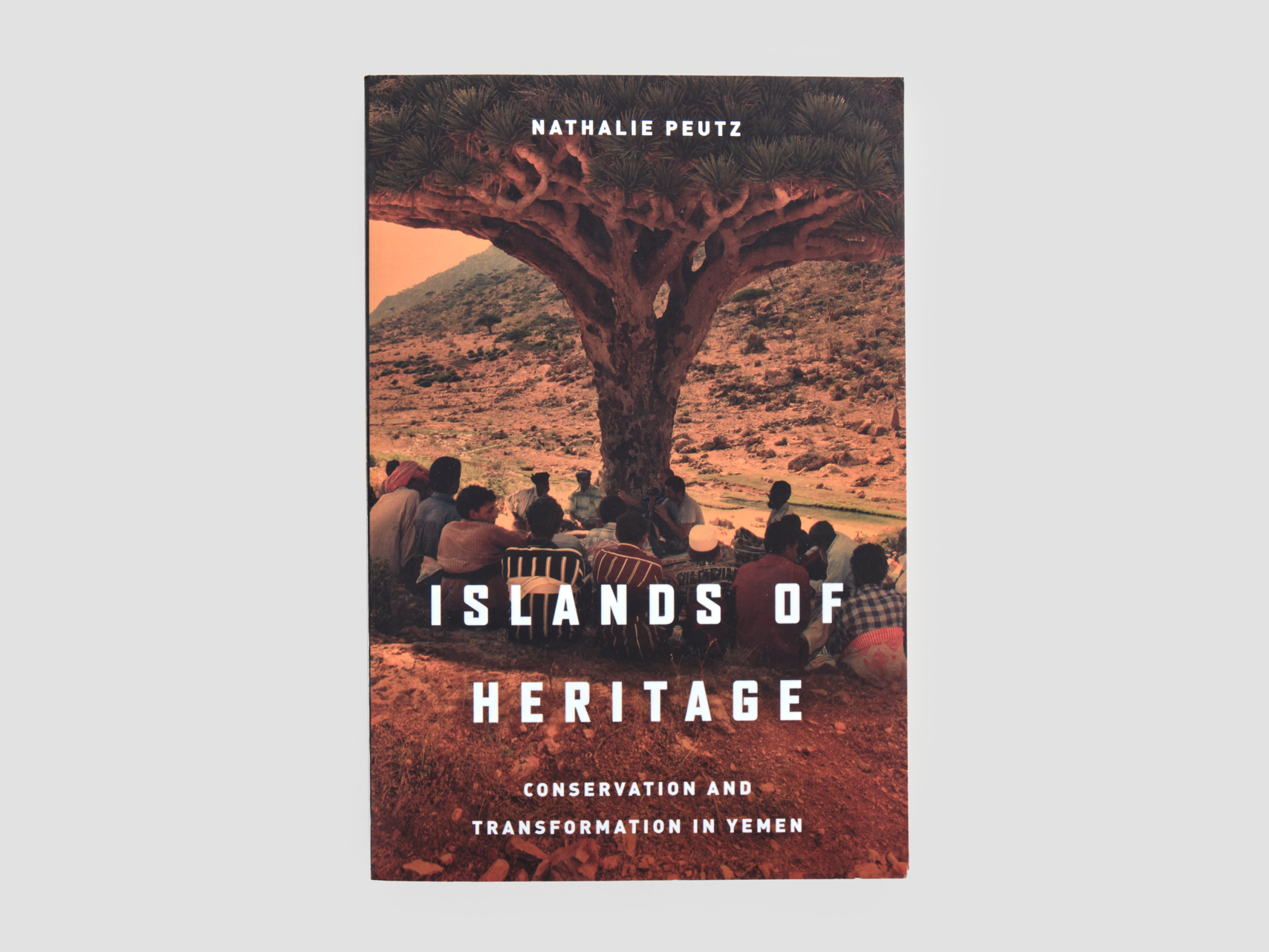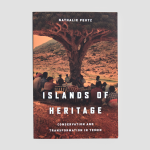Soqotra, the largest island of Yemen’s Soqotra Archipelago, is one of the most uniquely diverse places in the world. A UNESCO natural World Heritage Site, the island is home not only to birds, reptiles and plants found nowhere else on earth, but also to a rich cultural history and the endangered Soqotri language. Within a decade, this Indian Ocean archipelago went from being among the most marginalised regions of Yemen to one that is promoted for its outstanding global value.
Examining the multiple notions of heritage in play for twenty-first-century Soqotra, Peutz narrates how everyday Soqotrans came to assemble, defend and mobilise their cultural and linguistic heritage. These efforts, which diverged from outsiders’ focus on the island’s natural heritage, ultimately added to Soqotrans’ calls for political and cultural change during the Yemeni Revolution. Islands of Heritage shows that far from being merely a conservative endeavour, the protection of heritage can have profoundly transformative, even revolutionary effects. Grassroots claims to heritage can be a potent form of political engagement with the most imminent concerns of the present: human rights, globalisation, democracy and sustainability.
About the Author
Nathalie Peutz is Assistant Professor of Anthropology at New York University Abu Dhabi.
About the Publisher
Founded in 1892, Stanford University Press (SUP) publishes 130 books a year across the humanities, social sciences, law and business, informing scholarly debate, generating global and cross-cultural discussion and bringing timely, peer-reviewed scholarship to the wider reading public. Numerous recent accolades include the Hayek Book Award and an NAACP Image Award nomination, while its authors and their books frequently appear in impactful media outlets and leading academic journals. At the leading edge of both print and digital dissemination of innovative research, with more than 3,000 books currently in print, SUP is a publisher of ideas that matter and books that endure.





